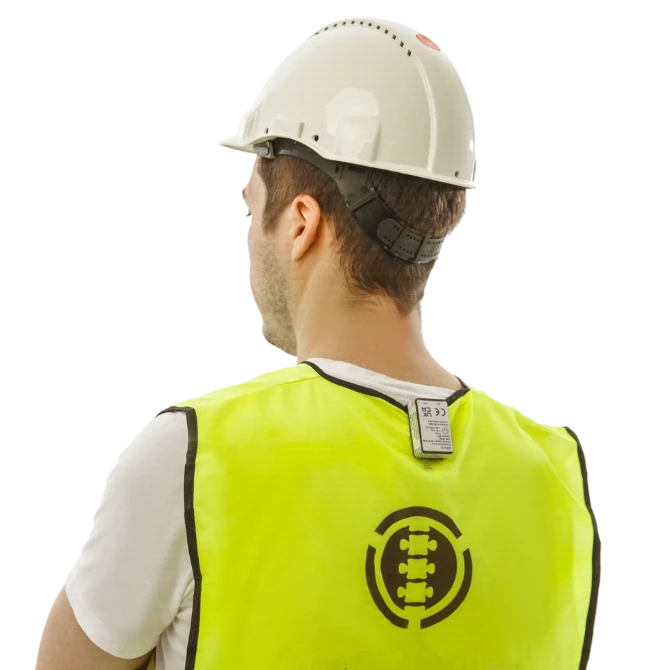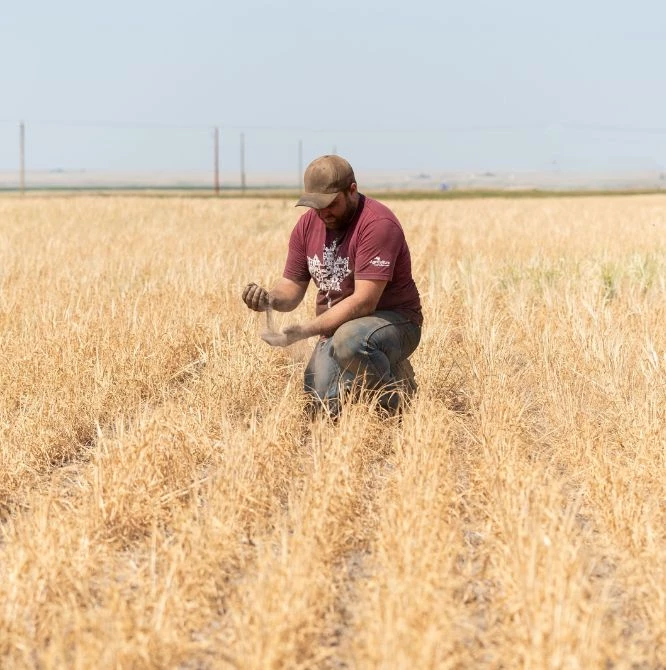
Behavior changing wearables result in an 86% reduction in ergonomic injuries
United Farmer of Alberta Case Study
General information
They believe that changing the movement behaviour of their workers is key to reducing ergonomic injuries and workers’ compensation claims and are committed to providing personalized attention and proactive strategies to enhance the long-term health and wellbeing of their workers.
UFA has consistently developed programs, looked at online/face-to-face training, strategized new safer practices, -warm-up stretches; they've done it all. And although all these solutions have been beneficial, they found them to be short-term and unsustainable for the tenured or new workers.
Virginia MacKay, Incident Investigations Specialist & Senior H&S Advisor at UFA was challenged by their distribution center to come up with ways that could improve their claims history when it came to worker injuries. Specifically, at distribution, the claims typically were all about ergonomics, neck strains, back strains, and pulled shoulders.
After researching, UFA landed on the SoterCoach wearable technology solution offered by Soter Analytics.

"The behaviour and the complacency that's in place is where the problems stem, so for one to change the complacency or change the behaviour, you have to work on changing habits, re-elevate your existing program, and start thinking more proactively"
The sensors capture and alert the workers via real-time haptic feedback of any high-risk spine movements including, lumbar flexion, rotation, static postures, repetitive movements, and identified any high-intensity movements.
All movement data is fed back to a companion app where workers can view their own personal results and follow micro-learning manual handling tutorials.

In November 2021 UFA rolled out the program on their pickers, sorters, and receivers at their DC and then due to the resounding success, continued in their retail stores, yard areas, bulk petroleum and cardlock facilities.
The results have easily justified the program with the longitudinal data showing that in 2021, before introducing Soter, the number of injuries and claims was consistently increasing. In Dec 2021 after Soter was implemented, there is a plateau in both claims and injuries resulting in:
- 86% - Reduction in Ergonomic injuries
- 67% - Reduction in recordable workers' compensation claims (WCB)
- 43% - Overall improvement in the number of spine hazards per hour
This equates to a 86% reduction in total ergonomic injury costs* with an 11 x Return on Investment.
In addition to the direct cost savings for reduced WCB claims, UFA is also trending towards a reduction in their WCB premium, which is based on the last 3 years of claims.
Direct cost savings to UFA included:
- Reduced hazardous movements → reduced biomechanical risk → reduced risk of injury
- Reduced the cost of manual handling training
- Reduced the requirement of observation/supervision of employees
- Profiling of hazardous tasks (task risk assessment) for their further elimination
- Reduction of claims costs & lost workdays
Priceless contributions included: - Reduction of claims costs & lost workdays
- Employee empowerment and autonomy
- Proactive insight into work done in the workplace
- Improved lifting techniques outside of work (24/7)
“I truly believe that everyone should wear the Soter device because it helps you learn and understand how much pressure we put on our backs every day. The tutorials were a nice added touch with valuable information. I can now self-trigger myself when I am about to lift anything and it's all thanks to the device”.

"We all know that changing habits takes constant nagging reminders and it is easier said than done. The Soter devices and the SoterCoach tutorials offered a great way to help our workers be more aware of the hazardous movements they were making and to self-trigger right away when the device is alerting them. The wearable devices also compliments our behaviour based program, SafeStart, and gets the workers to self-trigger on the hazardous movement and think about the Critical Error Reduction Techniques they should be doing such as “working on habits” and to “self-trigger"
Among other data, UFA found that in the DC, their pickers and sorters were the workers most at risk and poor bending, back twisting and repetition seemed to be the constant issue there. The data showed them exactly what area and which task was causing the high risk, so they were able to implement a tool to eliminate the risk and then obtain a comparison data report afterward.

More Success Stories
-


Kenco Logistics
Kenco uses SoterCoach wearable technology to proactively prevent injuries
-


Wincanton
Wincanton uses Soter AI-ergonomic sensors resulting in 250 days of no lost-time injuries
-


Travis Perkins
Soter Analytics helps UK’s largest building merchant to reduce manual handling injuries by 55%
-
Book a Free Online Demo
We'll give you an overview of Soter Solutions, provide examples of use cases, show you the dashboard and reporting, and talk through the basics of a good implementation. As the result, you'll see how your organization can:
-
REDUCE INJURIES
Get up to 86% of reduction in back & shoulder ergonomic injuries
-
DRIVE-DOWN CLAIMS COSTS
Achieve up to 67% of reduction in workers compensation costs
-
IMPROVE PRODUCTIVITY
Ensure smooth operations and reduce employee turnover
-
BOOST ROI
Earn over 250% ROI when partnering with Soter Analytics


